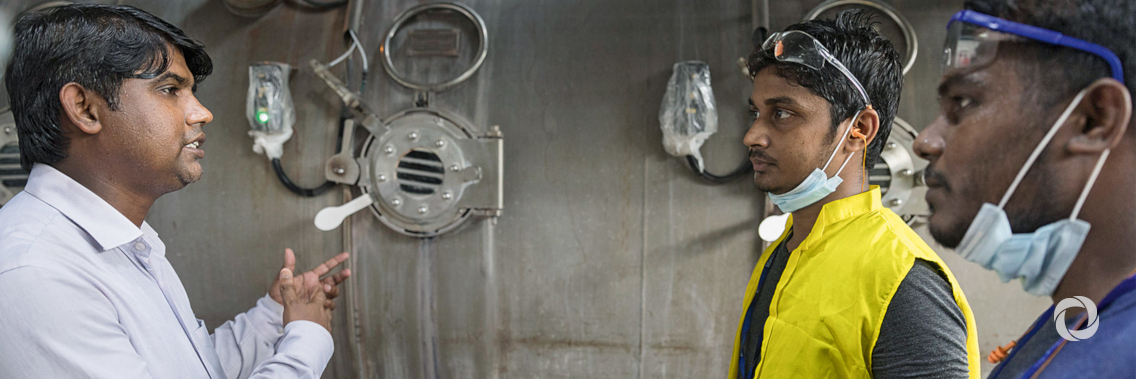With support from GIZ, Lidl has implemented environmental management at textile factories in Asia. As a result, 80 suppliers in China and Bangladesh now use cleaner and safer production methods.
Since the collapse of the Rana Plaza factory building in 2013, Bangladesh’s textile industry has been under particular scrutiny. Among the controversial issues associated with the production of clothing is the use of chemicals. This poses a health risk to employees, in particular, but also to the environment and to customers. The chemicals, which are primarily needed in order to dye, print and finish textiles, contaminate the large quantities of water used. This wastewater is often released untreated into the surface water and thus finds its way into the environment.
In 2014, Lidl tightened standards for sustainable environmental management in textile factories in China and Bangladesh that supply the company. In 2017, the Deutsche Gesellschaft für Internationale Zusammenarbeit (GIZ) GmbH launched the PURE project on behalf of Lidl, with the aim of training suppliers in Asia in environmental and resource efficiency. PURE focussed on three main areas: the responsible handling of chemicals, efficient use of energy and improved wastewater management. In addition to improving environmental protection, this also helps to ensure that employees have safer and cleaner workplaces.
This joint project by Lidl and GIZ covered 80 factories in Bangladesh and China. As a result, 148,000 employees now have better working conditions.
Since the end of 2018, after 18 months of support from GIZ, the participating factories have been able to implement and further improve their environmental management. The potential savings are huge: thanks to the measures taken, up to 5.8 million litres of water and around 222,000 tonnes of CO2 could be saved. However, lasting changes also require investments to be made by the factory owners, which can only be recouped in the long term.
Original source: GIZ
Published on 06 June 2019

